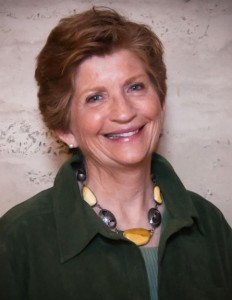 I was sitting in the front passenger seat of the shuttle van, riding between the airport and my hotel. The driver was a woman in her late 50s or early 60s. She works two jobs: as hotel shuttle driver and as a driver for the Florida Department of Transportation.
I was sitting in the front passenger seat of the shuttle van, riding between the airport and my hotel. The driver was a woman in her late 50s or early 60s. She works two jobs: as hotel shuttle driver and as a driver for the Florida Department of Transportation.
She asked what I did and I told her I work with women and their money. “Boy, do I need you!” she said.
She explained how lucky she was because the new Governor of Florida was not going to be able to wipe out her State retirement package. Since she was within the 24-month protected window, she could take an early lump-sum payout if she took it right away.
Then she asked, “When I get that payout, what should I do with it?”
That’s the Question of the Year.
All the old standbys are out the window.
Certain bonds used to be a safe bet. But not anymore. Gold and silver are appealing, but may already be priced high. Nonetheless, many people feel secure having some physical gold or silver stashed away somewhere. And others are going for non-physical metals: gold- or silver-backed Exchange-Traded Funds, or ETFs. But even these have some people nervous … because of stories that have circulated about exactly how much (or how little) gold or silver is truly backing them. Then you have commodity ETFs. And foreign currencies. But you have to know what’s going on … worldwide.
Good Old Cash is at risk of losing value to inflation, whether it’s physical cash in hand … or in a bank … or in a low-interest CD. There’s the possibility of waking up in a year or two and finding that the cash you have is no longer buying much of anything, because prices have skyrocketed.
And the stock markets? Stock indexes keep ratcheting up, with occasional slips. Analysts use words like schizophrenic to describe markets: some knowledgeable people remain enthusiastic while others predict total disaster. So which is it going to be? I’ve found no real consensus between any two economists or financial gurus.
So what was I supposed to say to the van driver? I am not a certified planner, so I cannot (and do not) give specific investment advice. But even if I wanted to …
All I could do was explain how volatile all markets are—worldwide—and how difficult it is to make relatively safe investments today. Especially for people so close to retirement that they no longer have decades to make up for poor choices. (Ask Bernie Madoff’s victims…)
The best I could say was “diversify, diversify, diversify.” I explained that doing nothing was no longer an option (i.e., cash in the mattress) because of the risk of inflation. I said that if she divided her investments into three or four different types of assets and made her investments in dribs and drabs over a period of time (and not all in one day, since she wouldn’t know which day to pick), she had a far better chance of weathering the current economic storm. One category would likely be going up as another went down. And at least she wouldn’t be in a single category that might tank and leave her with nothing.
Then I thought to myself, “What stocks would she buy and through whom? What happened to the simple solutions people used to have, such as some of the mutual funds that grew slowly but surely over time? Or CDs that kept up with inflation, because our money supply was being managed and wasn’t on steroids?”
I felt totally impotent. Like I was telling someone to throw her money at the wall to see what stuck. Unable in one conversation to help someone who has a real need. And she’s one of millions with similar questions.
You see, I coach women who haven’t prepared financially for the long term. Preparedness has nothing to do with their level of success, their intelligence, or the size of their paycheck. It has to do with what they were taught about money, the messages they picked up from childhood forward, and how those messages have translated into money behaviors.
What they all have in common is the fact that—regardless of how much money flows through their lives—they are not on track to be able to kick back comfortably one day. They’re somewhere between being in serious debt and having only meager savings. Not enough to finance the vision they have for their later years.
I’ve gathered so much solid knowledge and so many good tools that help women go from being controlled by their money to controlling their money … and, in turn, their financial futures. Once there, they are ready to work with a qualified, fee-based financial planner … and ready to actually implement a well-designed, age-appropriate, diversified plan.
But when it comes to wanting to help a woman I’ll see once, in the front of a hotel shuttle van, even with all my financial education I’m at a loss.
The simple, safe long-term investments are gone. Today, with the Fed printing money, the Government adding deliriously to the national debt, high unemployment, bankrupt cities and states, and uncertainty everywhere, the rules of economics we used to count on no longer apply.
We’re truly in uncharted waters.
Where do you have your nest egg invested? Is it “safe” according to the old rules? Or have you done what you can to keep it relatively safe in today’s free-for-all?
xxxxxxx
 Sharon O’Day is an expert in global finance and marketing with an MBA from the Wharton School. She has worked with governments, corporations, and individuals … yes, she was the secret ‘weapon,’ if you will, behind many individuals in high places. At age 53, she lost everything: her home, her business, everything. Since then, Sharon has interviewed women and done extensive research to understand how that could have happened, especially with her strong knowledge of numbers and finance.
Sharon O’Day is an expert in global finance and marketing with an MBA from the Wharton School. She has worked with governments, corporations, and individuals … yes, she was the secret ‘weapon,’ if you will, behind many individuals in high places. At age 53, she lost everything: her home, her business, everything. Since then, Sharon has interviewed women and done extensive research to understand how that could have happened, especially with her strong knowledge of numbers and finance.
The surprising answers will be shared in her upcoming book “Money After Menopause.” Today her focus is to show women how to reach financial security for the long term. She has developed a step-by-step plan to get past all the obstacles that keep women broke and scared … and from reaching the financial peace of mind they so deserve.






